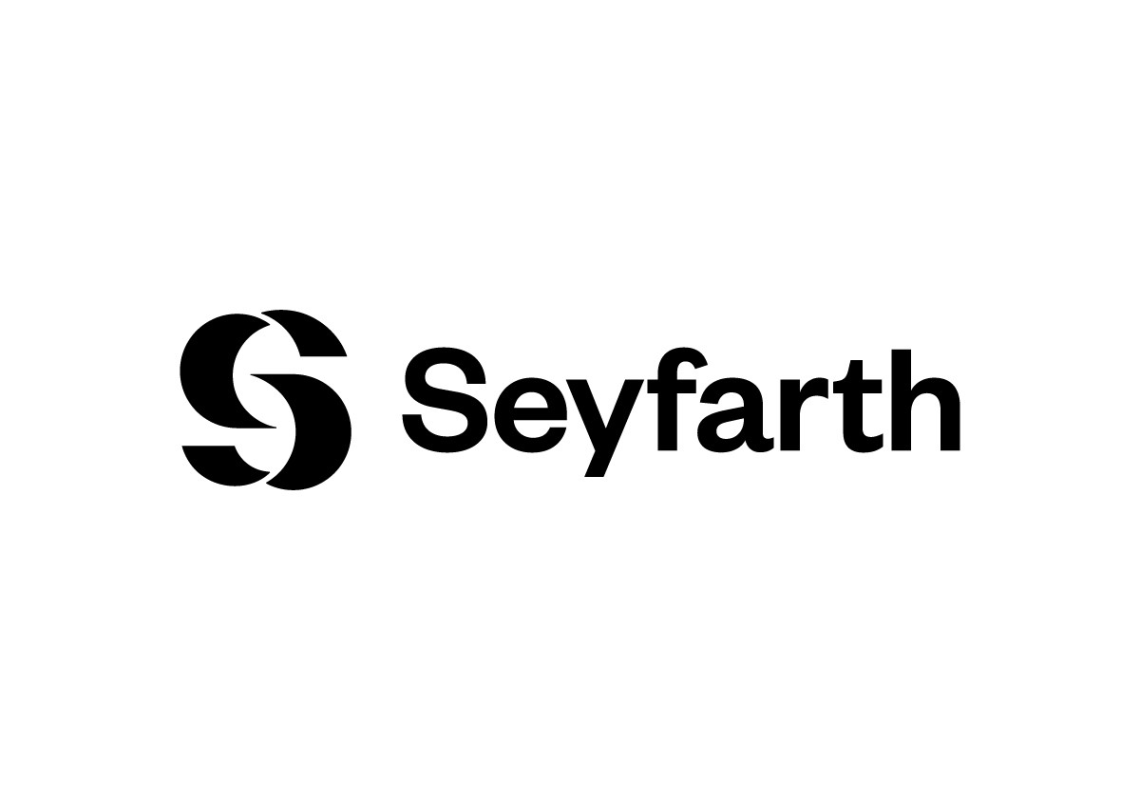A New Year Brings New Hope, And A Little Vaccine Clarity. Below is a brief discussion of where the various vaccine mandates stand in the courts. But this space is intended to provide a broader update on all of the various vaccine requirements, and anything else relevant in the vaccine world.
The Sixth Circuit’s dissolution was immediately appealed to SCOTUS which, in a somewhat surprising move, held a hearing last week to consider the dissolution of the stay, as well as injunctions blocking the CMS healthcare vaccination mandate in 25 states. SCOTUS issued both decisions yesterday, reinstating the stay of the OSHA ETS while the Sixth Circuit continues to consider the merits of the ETS. In a separate but related decision, SCOTUS also voted 5-to-4 to permit the mandate for the Centers for Medicare & Medicaid Services to take effect. Seyfarth put together fantastic legal updates on the substance of the SCOTUS decisions. We encourage the read.
As of now, the ETS remains stayed and unenforceable while the CMS regulation remains in full force. At this juncture, it is unclear what remnants of the standard OSHA will attempt to keep pushing. The OSH Act permits OSHA to issues ETSs in very limited circumstances, but such standards may only be in place for six months, until superseded by a permanent standard. By the time SCOTUS has an opportunity to review the merits, the ETS may have passed this temporal limit.
BBB Update: The Legislative Focus Has Shifted. Last week, Sen. Joe Manchin confirmed that there have been no new negotiations on the Build Back Better Act in the new year. Indeed, the Senator made clear that he is frustrated having even mild discussion about the contours of the Act. Given the clear reconciliatory hurdles the measure faces in the Senate, most Senators have moved their gaze to another salient legislative issue — voting rights. But, the Manchin problem does not go away by pivoting to voting rights — as he did back in the Summer, the Senator still has no intention of altering the filibuster for voting rights legislation. Indeed, just yesterday, his moderate ally in the democratic caucus, Sen. Kyrsten Sinema, reiterated her refusal to amend the filibuster rule for voting rights legislation.
The Democratic hope to include immigration reform as part of the reconciliation package is demonstrative of the reconciliation hurdles BBB faces in the Senate. Indeed, the House-passed version of the bill included a provision that would have extended work permits and provided temporary protection from deportation for certain undocumented immigrant. The Parliamentarian, though, put the kibosh to that idea, holding that such a provision cannot pass through reconciliation.
The Biden NLRB Is Poised To Revisit The Independent Contractor Standard. Recently, the NLRB invited public briefing on the legal standard governing whether a worker is an employee protected by federal labor law or an independent contractor who is not, signaling that it will revisit the Trump-era test established in a case called SuperShuttle DFW, which made it easier for companies to show that their workers are independent contractors rather than employees. The independent contractor standard has implications for a wide range of employers (see e.g. unemployment insurance), but it is particularly critical for gig economy companies and other business that rely on contractors to avoid the additional costs associated with formal employment, including fringe benefits and union negotiations, where applicable. Interested parties must submit briefs by February 10, 2022 in order to weigh in on how the Board will proceed on this issue, but every indication is that the NLRB will overrule or at least modify SuperShuttle DFW in ways that will make it more difficult for companies to show that their workers are independent contractors. Of course, if the Board does that, the issue is likely to be challenged in the courts.
A Supplemental Allocation Of H-2B Visas. Huzzah! Both the DHS and the DOL have joined forces to issue a temporary final rule that would add an additional 20,000 H-2B temporary nonagricultural worker visas for fiscal year 2022. The supplemental H-2B visa allocation consists of 13,500 visas reserved only for returning H-2B workers from one of the last three fiscal years and 6,500 visas for the Northern Triangle countries of Honduras, Guatemala, and El Salvador. These visas will be set aside for U.S. employers seeking to employ additional workers on or before March 31, 2022. If prior years are a precedent, it is likely that another supplemental allocation will be issued for the six month period that begins on April 1. The DHS has indicated that it intends to issue a separate rulemaking that would reform the H-2B program, but proposed changes to the current system have not been advertised.
DON’T “Forget About It”: Review of 2021 and Outlook for 2022 In the NY LE Space. Seyfarth continues to provide updates on the most important recent changes to New York employment law. As just one example, Seyfarth recently reported that an amendment to New York City’s Earned Safe and Sick Time Act went into effect that provides employees with paid time off in connection with vaccinating their children for COVID-19. The bill will expire on December 31, 2022. New York has also adopted the CDC’s most recent quarantine changes. Additionally, right before we all sang Auld Lang Syne a couple weeks ago, Seyfarth reported that the New York State Department of Labor released proposed regulations to govern Section 2 of the NY HERO Act, which requires employers to permit employees to form workplace safety committees and raise workplace safety and health concerns to employers. Although not yet final, these proposed regulations provide insight into the NY DOL’s interpretation of Section 2 and a general framework for the ultimate regulations the NY DOL will implement.
For more on the changes to New York employment law in 2021 and what to expect going forward in 2022, check out Seyfarth’s webinar entitled New York Employment Law Update: Review of 2021 and Outlook for 2022, which was held on Thursday, January 13, 2022; the recording is available here. In addition to the topics mentioned above, the webinar discussed recent changes to NY law on minimum wage, the NYC vaccine mandate, NYS mask mandate, updated whistleblower protections, and the expansion of NY paid family leave.
Don’t Expect Another ARPA, But Congress Is Still Considering More COVID-19 Relief. Job creation and economic growth over the last six months, coupled with an increasing vaccination rates, have diminished the need for additional stimulus to combat the economic wreckage caused by the pandemic. Not to mention political concerns over a potential increase in already concerning inflation numbers. Yet, in light of Omicron’s light-speed transmission pace, some members of Congress are considering more targeted stimulus in 2022, directed only at restaurants, performance venues, gyms and minor league sports team. The targets make sense as may bars, restaurants, and gyms are again starting to shut down, and as local legislation is requiring those business to check vaccine status of all patrons, as we noted in the piece above.
If DOL Plans To Cooperate With The DHS, Why Not Also The NLRB? The DOL and NLRB have voluntarily — it does not have the force of law — entered into a memorandum of understanding that the two agencies will share any information relevant uncovered during an investigation with the other. “This may include complaint referrals and other sharing of information in complaint or investigative files relating to alleged violations of the laws enforced by DOL/WHD and NLRB.” In addition to information sharing, the MOU also covers the procedures for requesting information, pursuing joint investigations, training, education, and outreach between the agencies. Speaking of Federal employment agencies, Seyfarth recently published its annual report of EEOC-initiated litigation, another fantastic read.
We Spoke Too Soon: VA Remains A Ways From Becoming California’s L&E Brethren. As we noted here, over the last few years, the Virginia Legislature passed, and the Governor signed, a number of pro-labor, pro-employee pieces of legislation. That tide appears to be retreating with the recent victory of Glenn Youngkin to the Governor’s mansion. Not only did the Virginia voters elect a more conservative executive, the GOP also won both Virginia state-houses: a reactive hat trick. Expect the now-more conservative legislative powers in Virginia to attempt to roll back some of that pro-employee legislation.
Powerful, And Controversial, CA Legislator Retires Legislative Seat For Labor Job. This space often speaks to LE policy that comes from the Golden State. Much of that pro-labor legislation was born from (or at least credited to) Assemblymemer Lorena Gonzalez. Think, for example, of the controversial AB 5, which made it exceedingly difficult, if not impossible, to classify most workers as independent contractors in lieu of employees, as well as a slew of pro-employee legislation just this session. As such, we would be remiss not to at least mention the Assemblymember’s somewhat surprising decision to retire from the legislature to become the new executive of the powerful the California Labor Federation, AFL-CIO. Since bursting onto the state-wide scene in 2013, Ms. Gonzalez has been a fire brand, unapologetically pursuing a pro-employee agenda, even if the downsides to Legislation she authored sometimes outweighed the benefits. Indeed, this author often disagreed fundamentally with many of her policy positions, especially in the LE space. Regardless of disagreement, Assemblymember Gonzalez was a fierce advocate and a devoted public servant. And, while this may be an unpopular opinion in some circles, California public policy improved with her pushing of the envelope. With her new position, the employer community will still be fighting her perhaps greater influence, but her vast record of public service should be acknowledged and celebrated.
See more »
DISCLAIMER: Because of the generality of this update, the information provided herein may not be applicable in all situations and should not be acted upon without specific legal advice based on particular situations.
© Seyfarth Shaw LLP | Attorney Advertising
Refine your interests »
This website uses cookies to improve user experience, track anonymous site usage, store authorization tokens and permit sharing on social media networks. By continuing to browse this website you accept the use of cookies. Click here to read more about how we use cookies.
Back to Top
Explore 2021 Readers’ Choice Awards
Copyright © JD Supra, LLC






